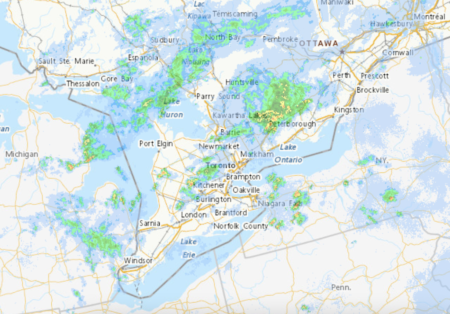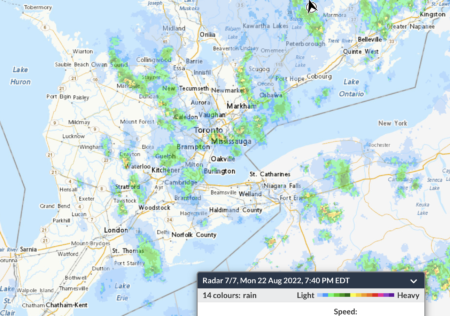Created with DiffusionBee, a GUI for Stable Diffusion. Prompt: “phd student in year 10, in the style of Salvador Dali”
Author: Milan
Teaching in 2022
With my dissertation largely done and PhD funds much depleted, I am taking a final TA job in POL106 “Contemporary Challenges to Democracy: Democracy in the Social Media Age” (Professor Ronald Deibert).
The subject matter is obviously at an introductory level, and it relates to courses where I have been a TA before: POL211 “Intelligence, Disinformation & Deception: Challenges of Global Governance in the Digital Age” (Professors Jon Lindsay and Janice Stein) and ENV381 “Social Media and Environmentalism” (Professor Steve Easterbrook).
Ron Deibert is the founder and director of U of T’s very interesting Citizen Lab, which will add to the interest of the course.
My brother Mica is starting this term as a teacher at the Bodwell High School in North Vancouver, and Sasha is starting his second year at the Chief Jimmy Bruneau Regional High School. It’s neat that we will all be teaching this term.
Arithmetic of power and plutonium
The first pile at Hanford generated 250 million watts—250 megawatts or MW—of thermal power and produced each year about a hundred kilograms of plutonium. A rule of thumb is that a megawatt of fission heat in a natural uranium reactor accompanies the production of about a gram of plutonium-239 per day. About six kilograms were sufficient to make a bomb.
Garwin, Richard L. and Charpak, Georges. Megawatts and Megatons: The Future of Nuclear Power and Nuclear Weapons. University of Chicago Press, 2002. p. 33
Renewable energy has drawbacks and environmental consequences
Renewable energy sources — wind, wave, solar, and the like — are generally the preferred energy sources of environmentalists. At the same time, there is no way to produce energy without some sort of environmental impact, and the more people you need energy for the greater the impact will be.
Some examples of environmental impacts from renewable energy:
- Mesmerised brown crabs ‘attracted to’ undersea cables
- How do tides and turbines affect sealife? Fundy study hopes to find out
Nonetheless, unintended side effects of renewable energy sometimes lead environmentalists to oppose it. In my view, they are missing how every energy source will have drawbacks and the question is how they relate to the drawbacks from alternatives, chiefly fossil fuels. Environmentalists can be too easily inclined to become perpetual and reflexive critics, always emphasizing the problems with any course of action and effectively acting as a blockage to any action.
Related:
Renewable energy options:
- The efficiency of solar
- Energy from the oceans
- Solar panels at 30 metres a minute
- Quantity of solar energy
- Google and geothermal in Canada
- Geothermal in Alberta
- Big potential for offshore wind
- Ways to generate electricity
- Grouse Mountain’s 1.5MW wind turbine
- The Desertec solar plan
- Possible doctoral topic: can renewables power the world?
- Open thread: the cost of renewable energy
- New big dams in Canada
Environmentalist / NIMBY opposition to renewable projects:
- Renewables, land, and trade-offs
- Artificial geothermal and earthquakes
- Rejecting solar in California
- The climate movement and “100% renewables”
- Keystone XL uncertainty and the environmental movement’s proficiency at saying no
- Open thread: British Columbia’s Site C Peace River dam
- Saying no to climate solutions
- Reading about the resistance dilemma
Energy storage:
- Compressed air for mobile energy storage
- Pumped hydroelectric storage in Wales
- Pumped and multi-lagoon tidal systems
- Proposed pumped hydroelectric storage in Australia
- Batteries for large-scale energy storage
- Open thread: energy storage
Transmission and grid interlinkage:
- KombiKraftwerk
- HVDC transmission for renewable energy
- Tomorrow’s electrical generation: distributed or concentrated?
- Grid technologies to support renewable power
- Rail electrification and power transmission
- A pan-European electricity grid
Demand shaping:
Politics of renewables:
- Google’s commitment to renewables
- The only question on renewables is when
- Canada’s new 90% target for non-GHG emitting electricity
- Increasing renewable capacity is much harder than increasing energy consumption
- A renewable energy plan for the UK
- Renewables in Germany
- How not to use feed-in tariffs
- Renewable energy and the budget
- Responding to Kenneth Green on renewable energy
Onward toward examiners
A complete dissertation manuscript in LaTeX format is done and in the hands of my committee.
Now, I should get comments from a professor within the department but outside my committee (internal external) and a political scientist from a different university (external external).
Once I address their comments, we can move to the dissertation defence, which my committee is currently expecting in November.
Summer storm
To do lists telescoping down
Despite still not being at 100% physically or mentally, I am working through a four-step process for getting through all dissertation-related to-do lists, including emails to self, project tracking spreadsheets, and tasks written on physical notecards:
- Is there anything essential to successfully defending the dissertation still unfinished?
- Create final MS Word version for the LaTeX conversion. Accept all tracked changes.
- Convert Word manuscript into LaTeX, including complete footnotes.
- Re-write the final ten pages of the conclusion to better serve as a summary of the overall argument and statement about the work’s contribution to the literature.
The target date for the LaTeX version, ready for external examiners, and the new closing pages is the end of August.






